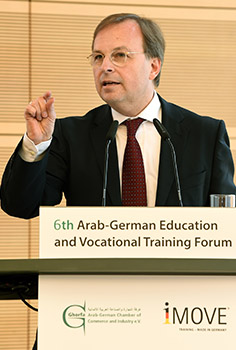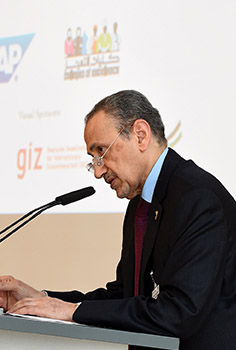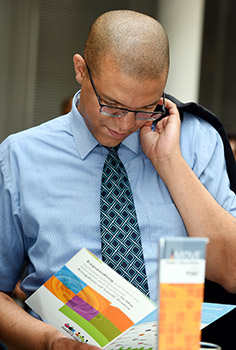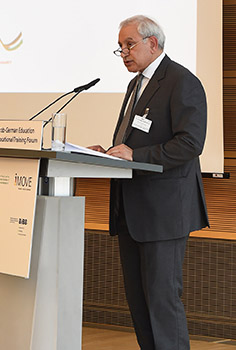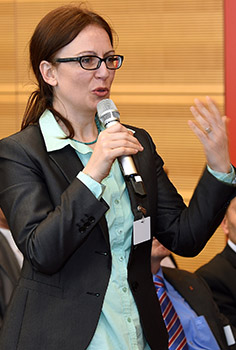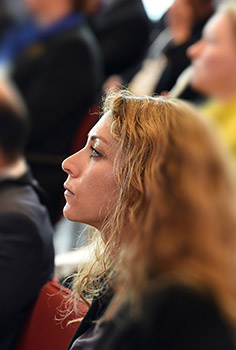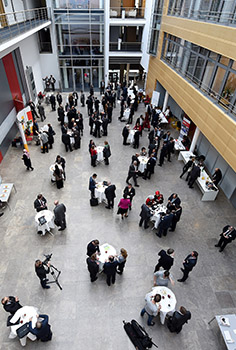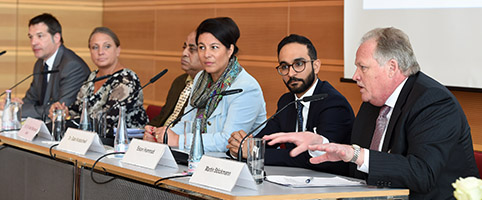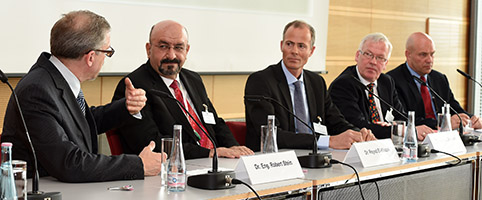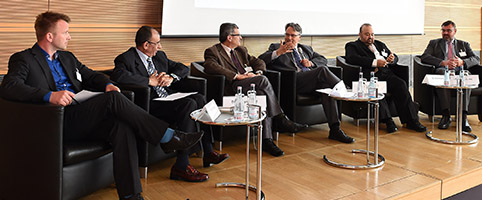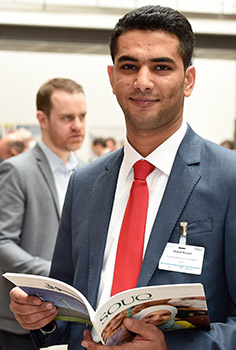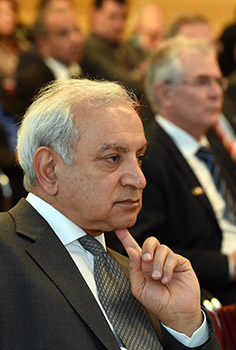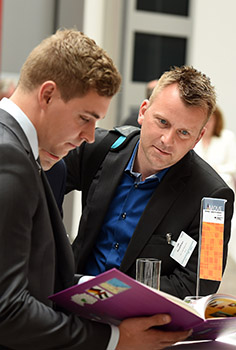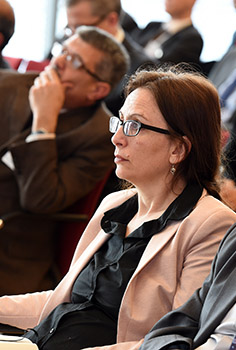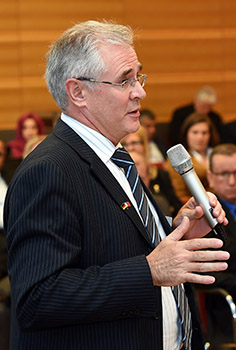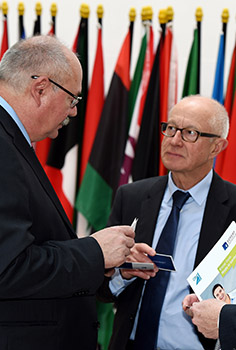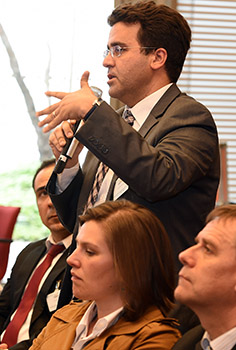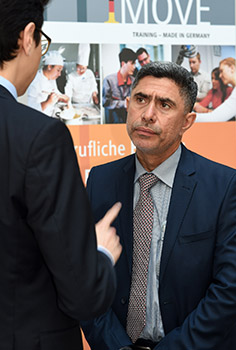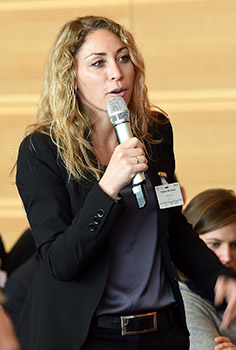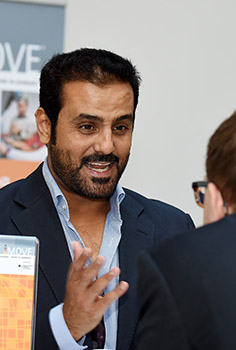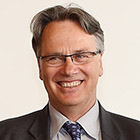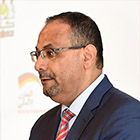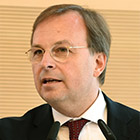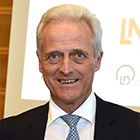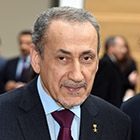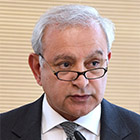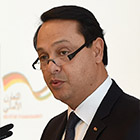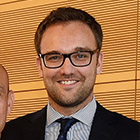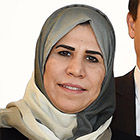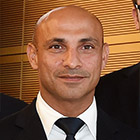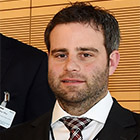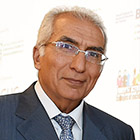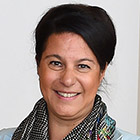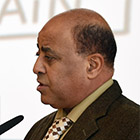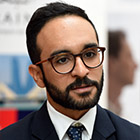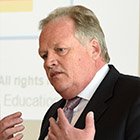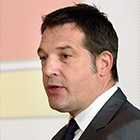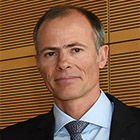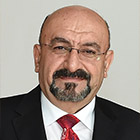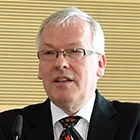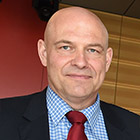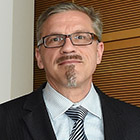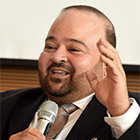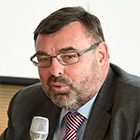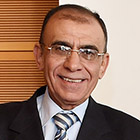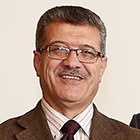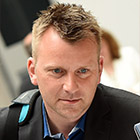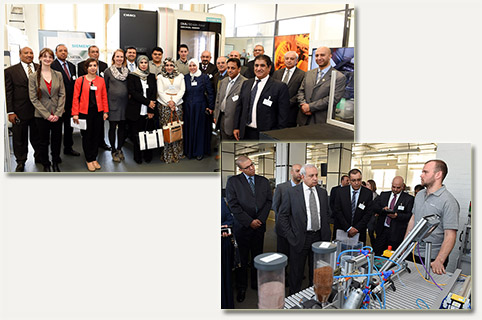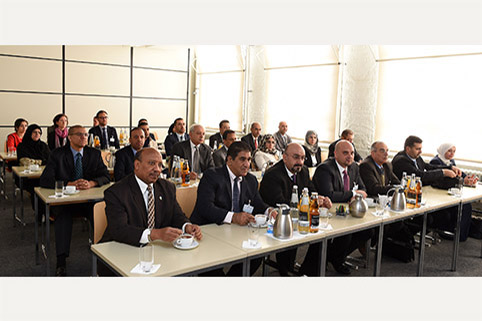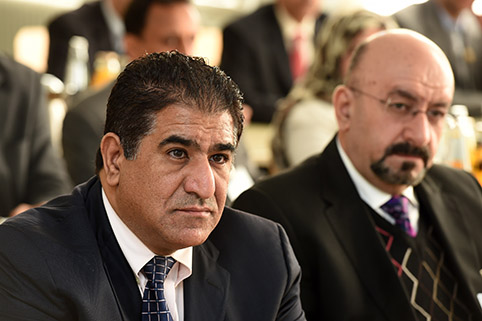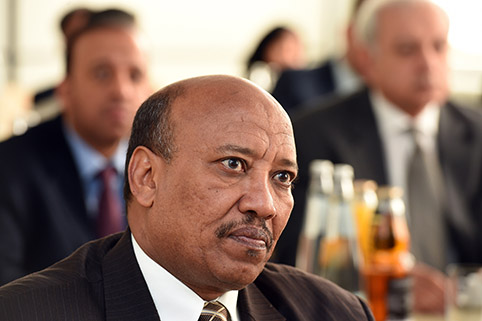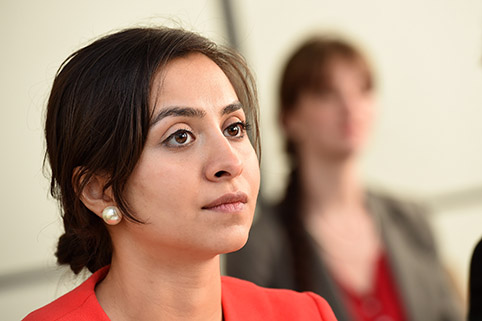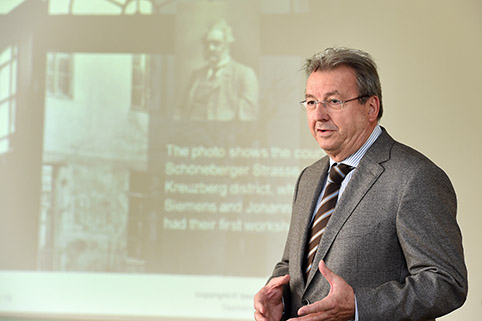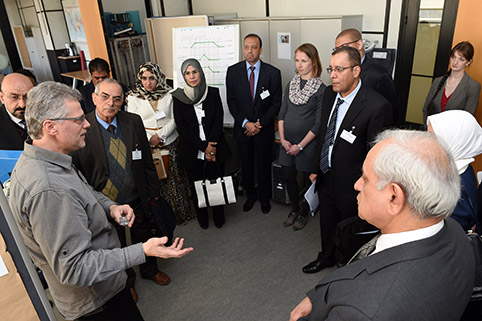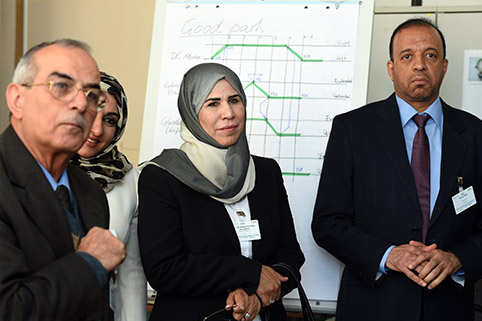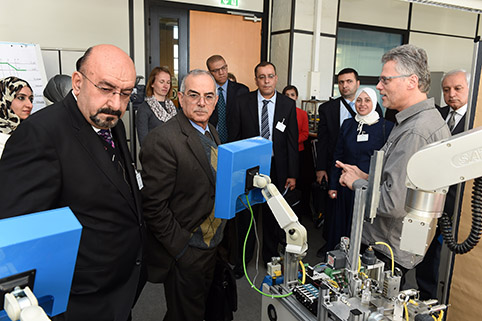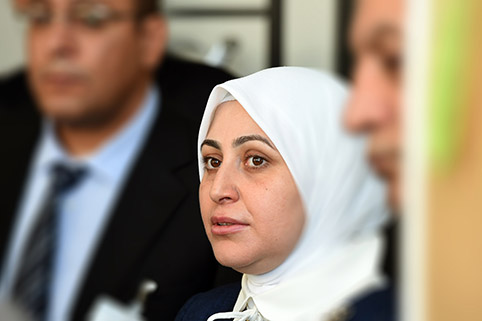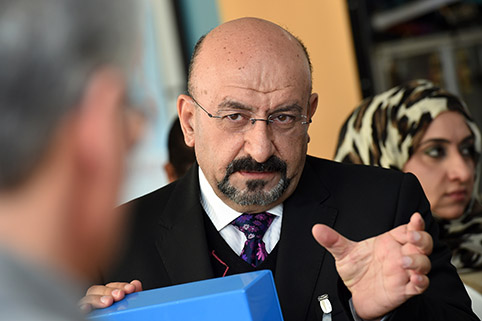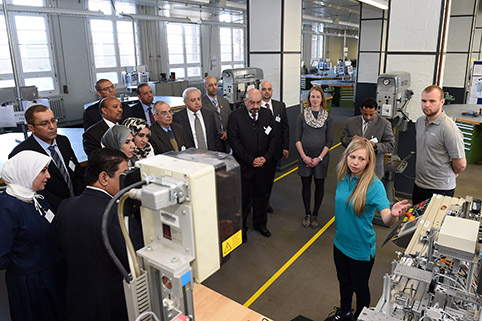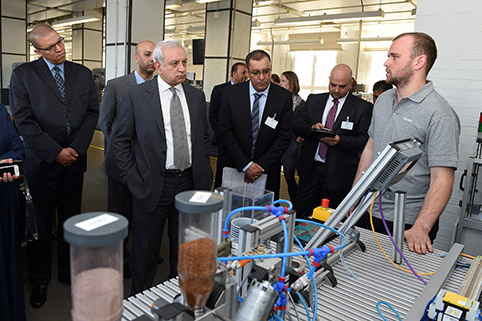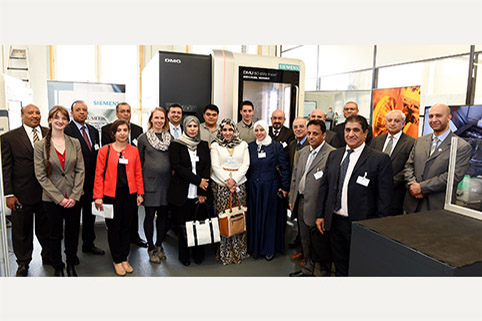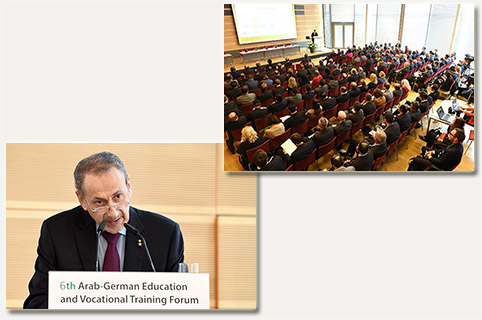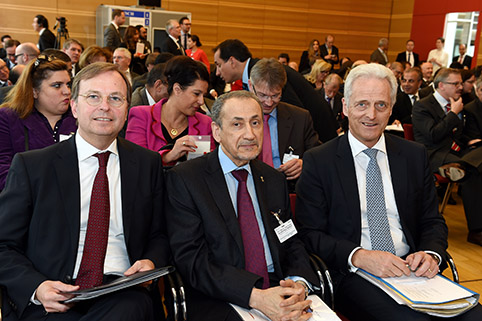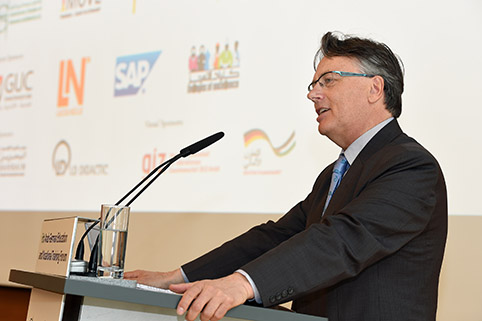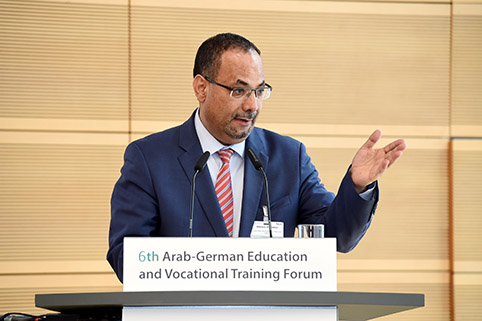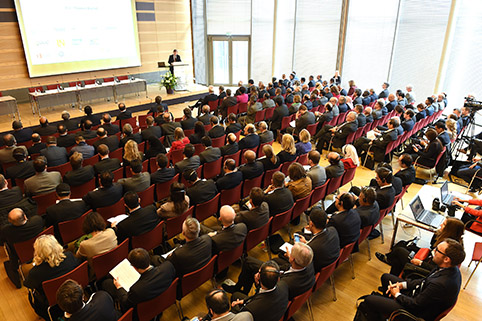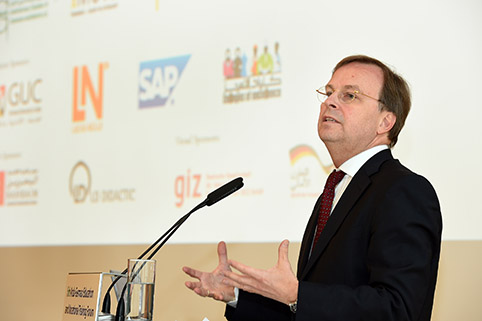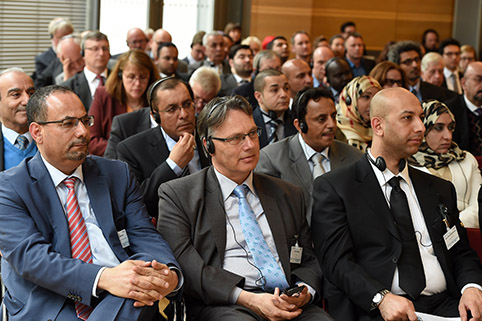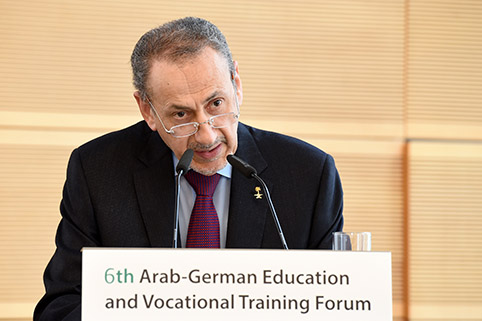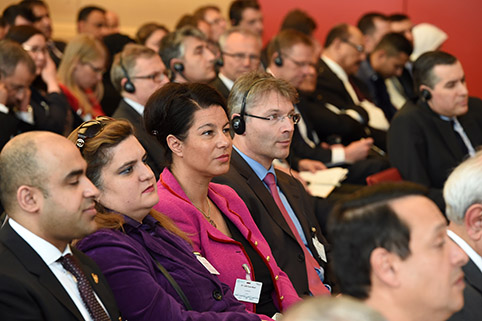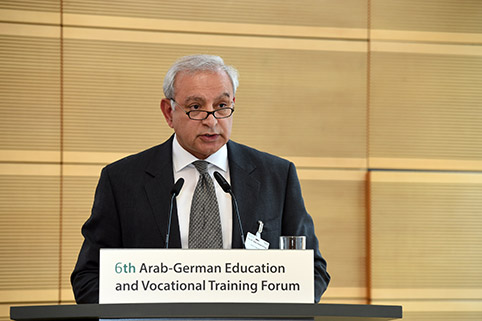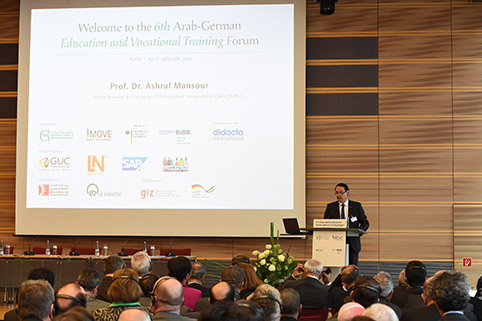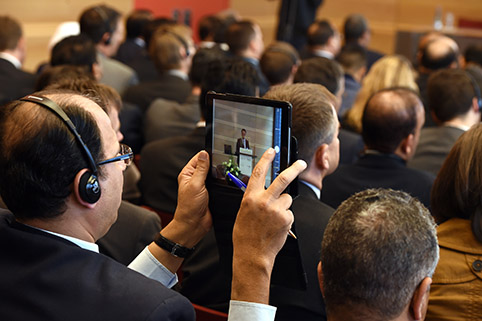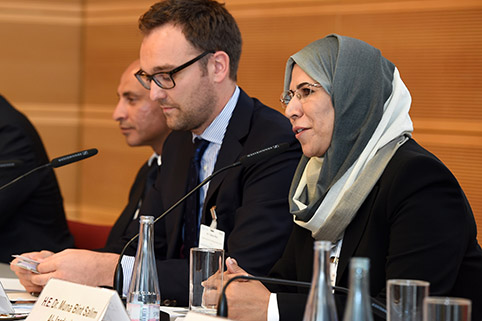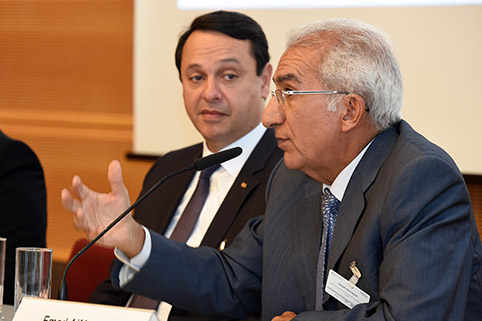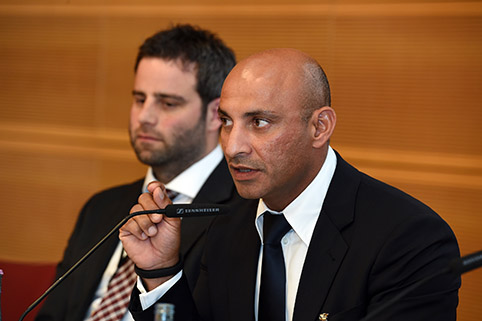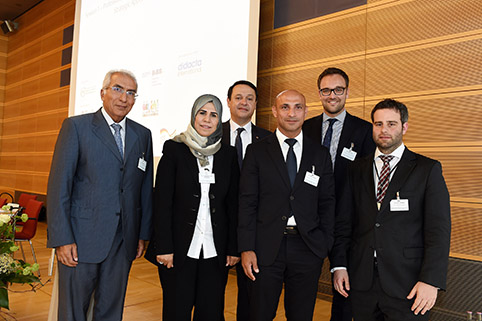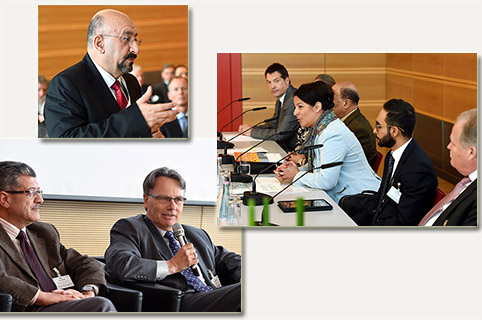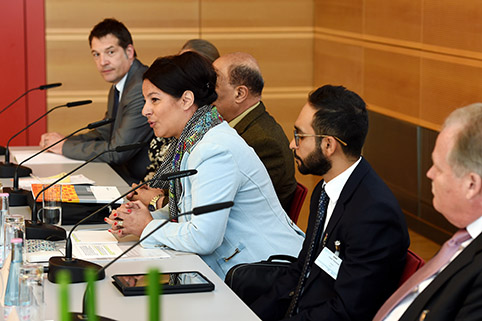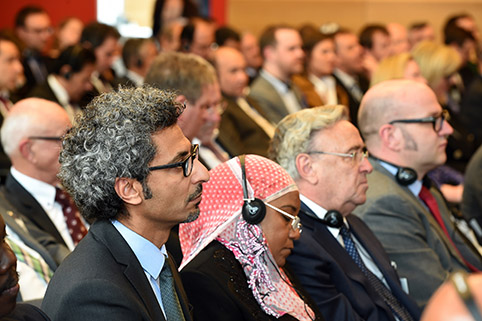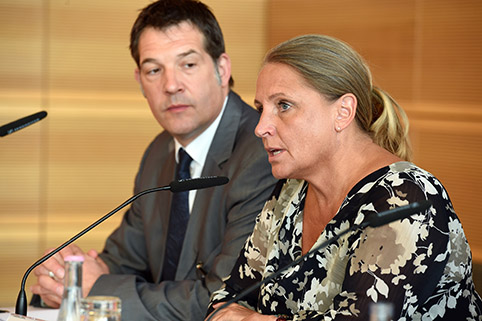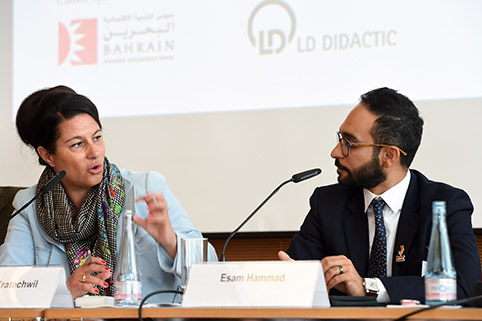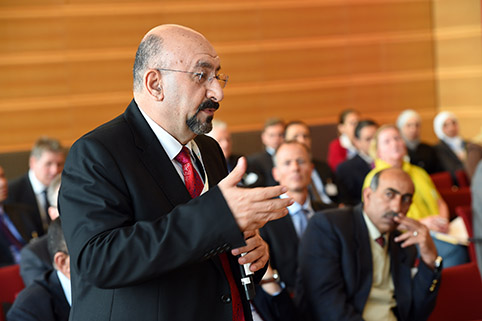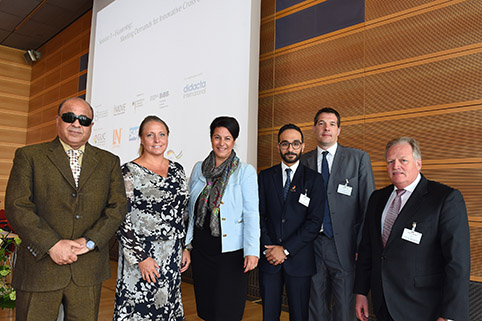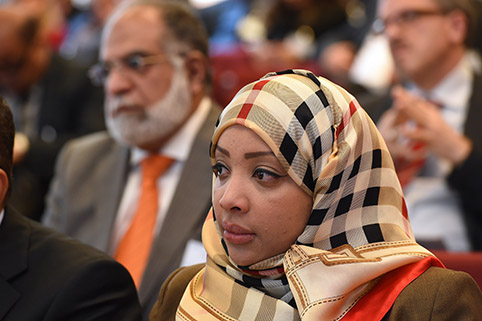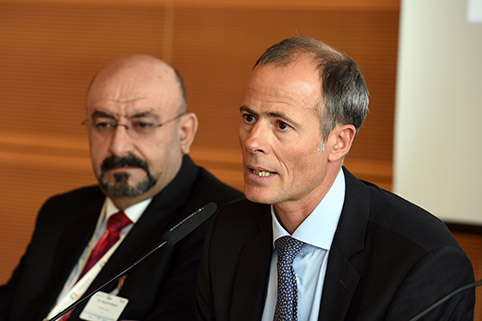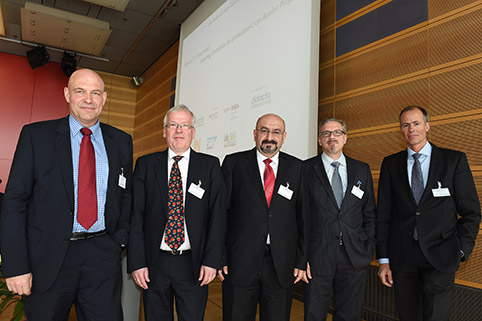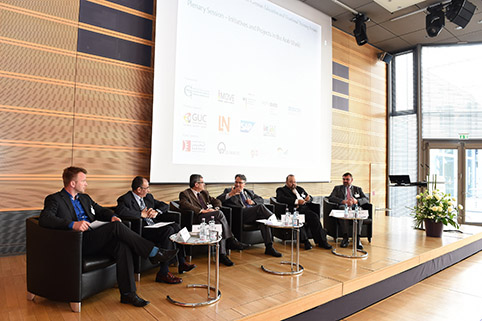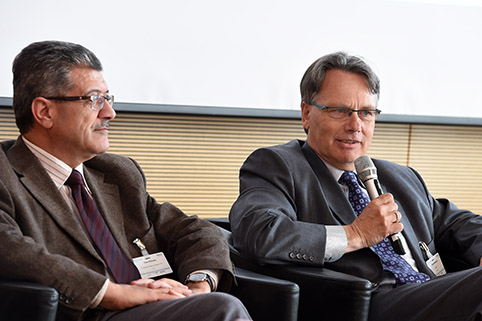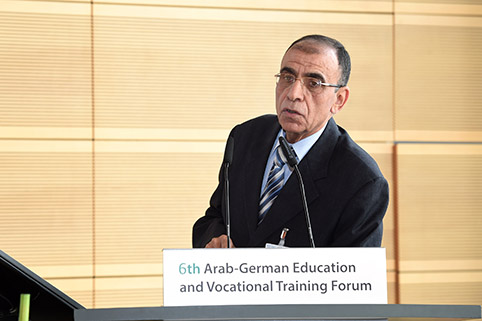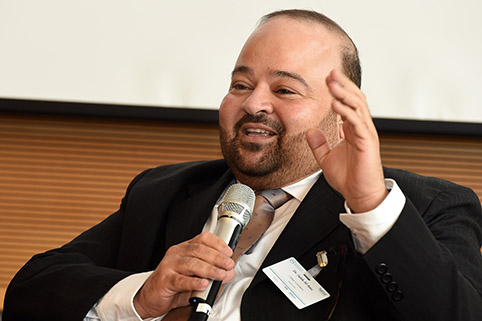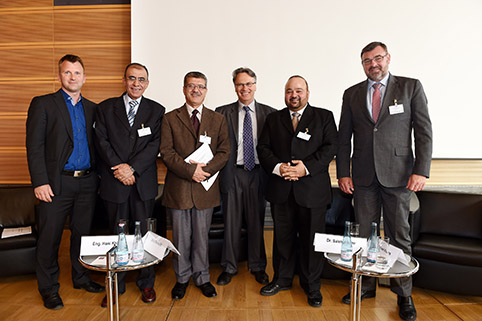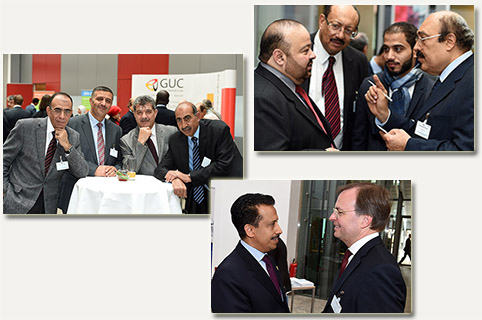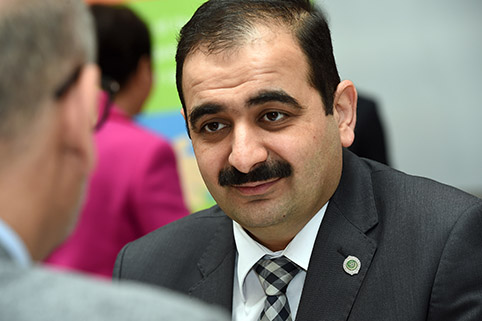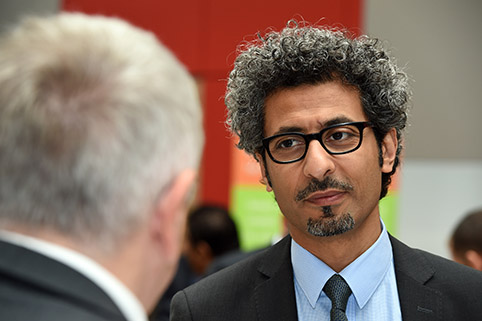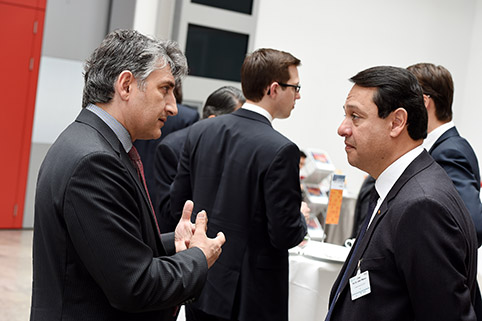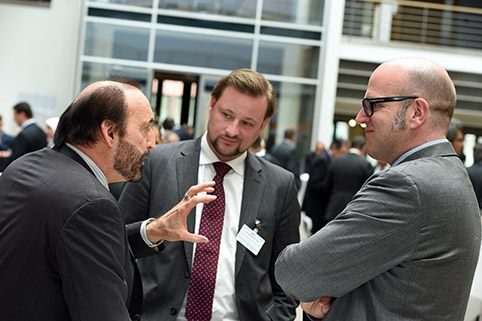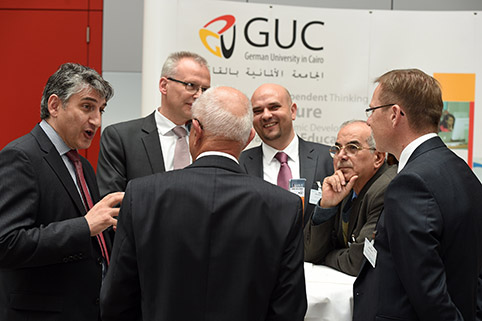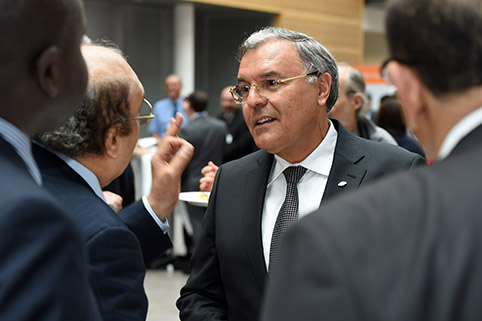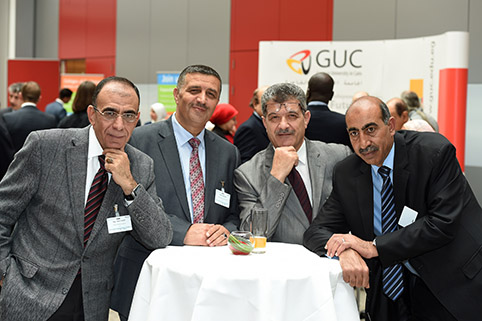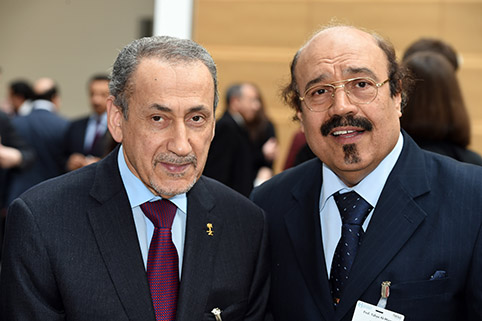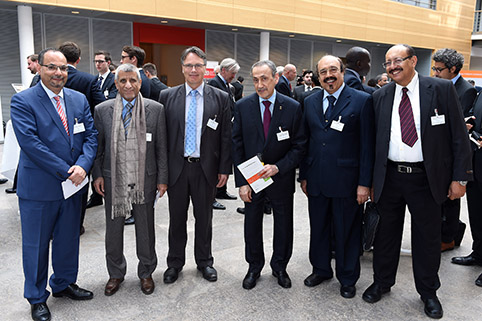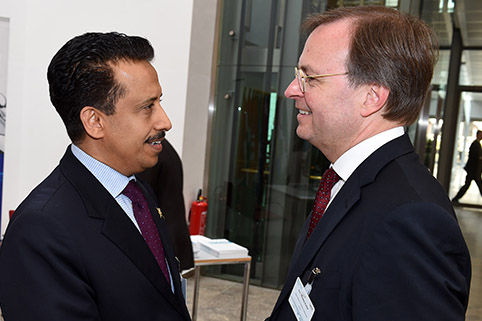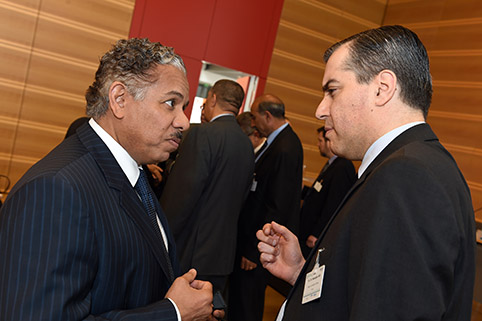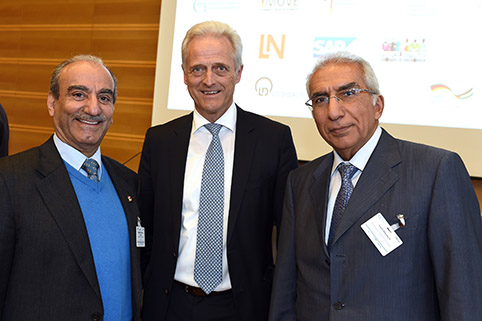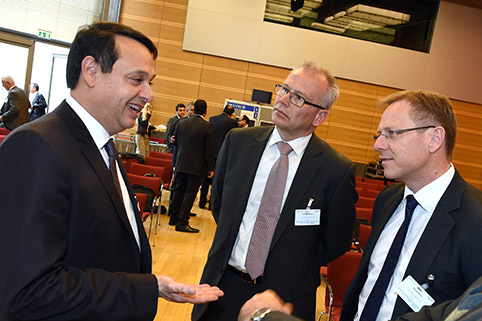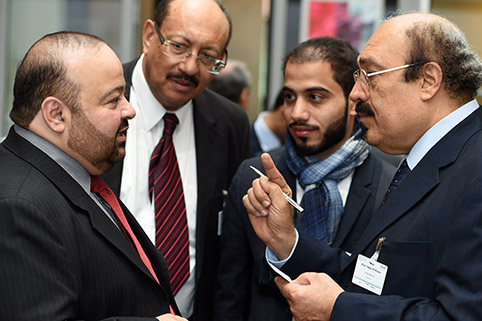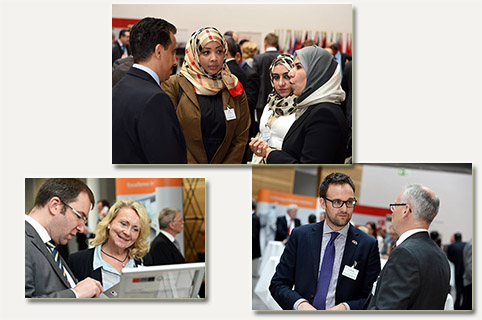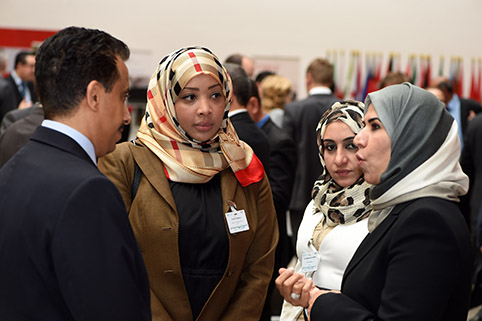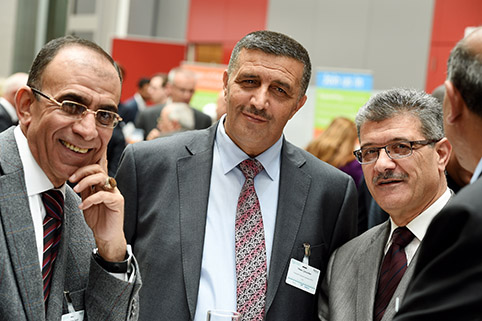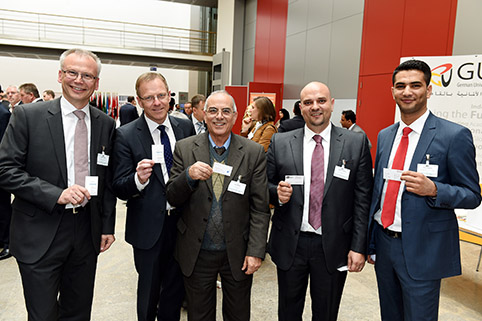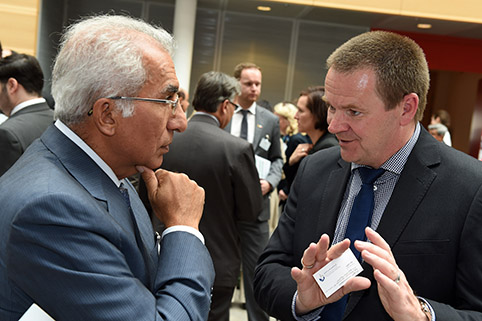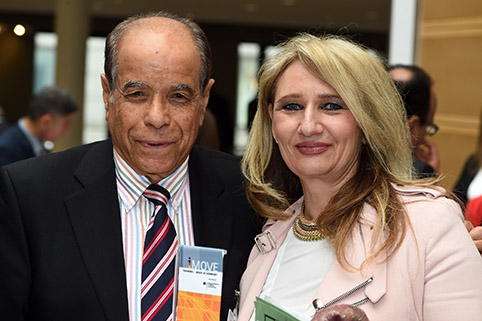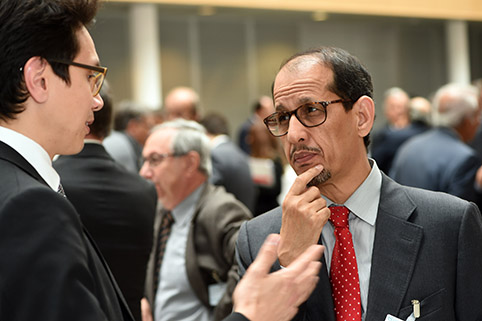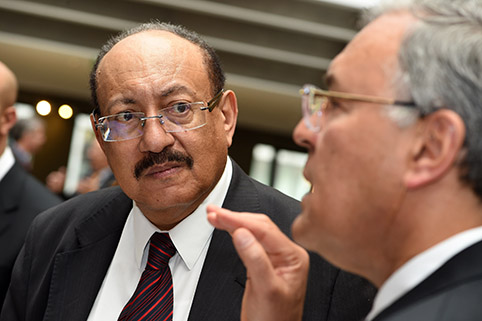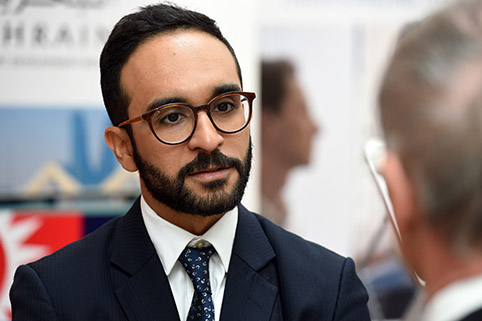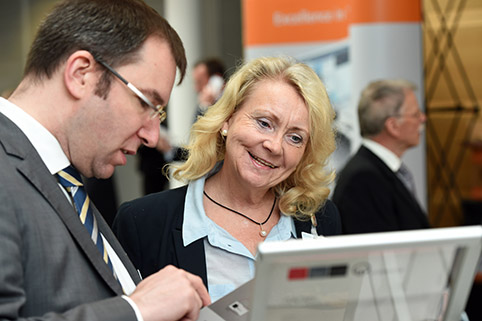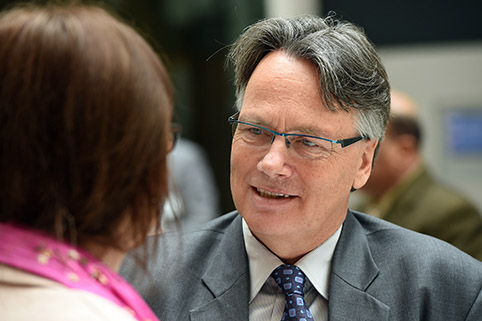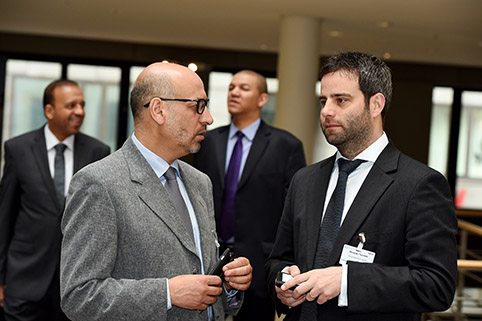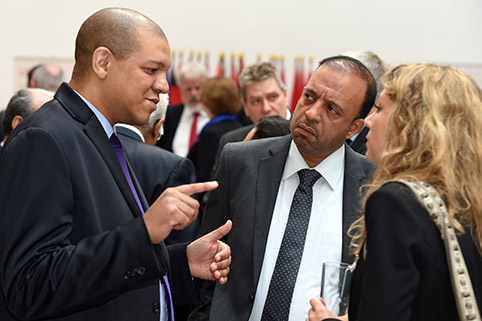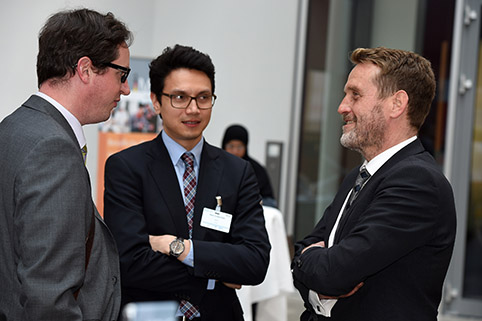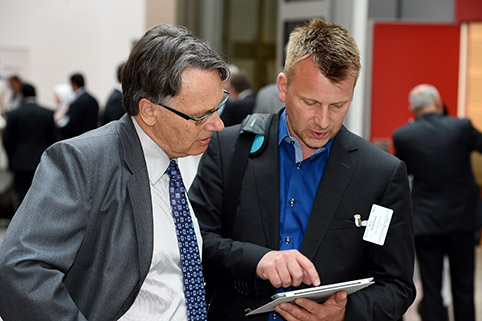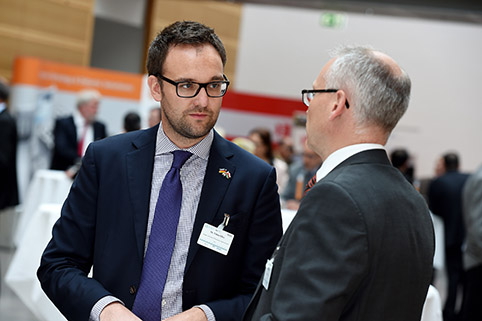6th Arab-German Education and Vocational Training Forum
Stepping stone to markets in the MENA region
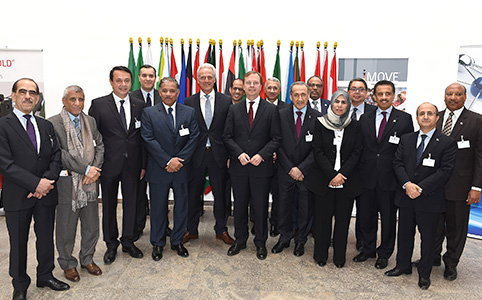
Some 250 experts gained insights regarding the co-operation opportunities in the field of vocational and advanced training, discussed current trends and intensified their contacts with partners regarding the development and further expansion of projects in the field of education.
This year's key topics included approaches to dual academic degree courses, human resource management for educational concepts and e-learning. As usual, the event concluded with the planning and implementation of current projects.
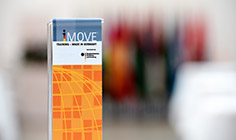
The forum attendants moreover argued the case for the establishment of a modern culture of learning in businesses. In future, innovative educational concepts should sustainably complement the existing education systems. E-learning is being perceived as a new opportunity for supporting learning performance in a targeted manner. The options provided by the flexible and individual concept of mobile learning in particular generate great enthusiasm amongst the education experts.
At the end of the forum, Ulrich Meinecke announced that iMOVE will organise an information event on 12 June 2015 in Germany for the "Colleges of Excellence" invitation to tender.
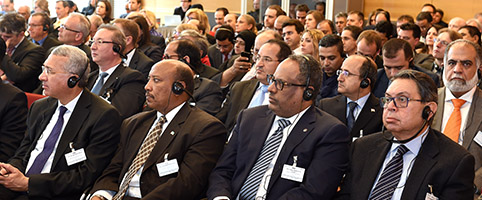
Opening
Invitation for knowledge transfer
Ulrich Meinecke, Head of Division of iMOVE, invited the forum attendants in his welcome address to use iMOVE as a gateway to the German education industry. He pointed out that the BMBF places great importance on the co-operation with the Arab countries and that co-operation with iMOVE can greatly contribute to the reform and further development of vocational education and training systems.
Abdulaziz Al-Mikhlafi, Secretary General of the Ghorfa Arab-German Chamber of Commerce and Industry, thanked the many active supporters of the forum as well as the forum participants for their recognition of the organisers' work as expressed by their attendance. He emphasised the importance of education for sustainable relationships and expressed his hope that the forum will generate prospects of new partnerships.
Dr Peter Ramsauer, President of the Ghorfa, praised the good economic relations between Germany and the Arab countries and invited the attendants to jointly fully exploit the co-operation potential in the field of education. He also highlighted the education offensive by which the Arab economies seek to strengthen their competitive capability and the opportunities this creates for German providers of education.
The Parliamentary State Secretary to the Federal Minister of Education and Research, Thomas Rachel, conveyed his minister's greetings and reported on the instruments and investments used in the effort to appropriately qualify young people in Germany. He pointed out that many German education providers generate up to a quarter of their revenue through co-operation with Arab countries. He moreover emphasised the increasing importance of practical orientation, also in the field of academic education.
Professor Ossama bin Abdul Majed Shobokshi, Ambassador of the Kingdom of Saudi Arabia, emphasised the importance of vocational education and training in the face of current political change. He presented the framework conditions of the education market in Saudi Arabia with its 7.9 million young people needing vocational training. He expressed his view that the German model of combining theory and practice is particularly well-suited to demand and fit for implementation in a wide range of projects in his home country.
Dr Bader Hamad Al-Essa, Minister of Education and Higher Education of the State of Kuwait, described the efforts of his country to establish a future-oriented education system and to diversify education. He identified excellent university education, sustainability in the innovation process and qualification programmes for people with disabilities as key tasks.
The founder and Chairman of the German University in Cairo (GUC), Professor Ashraf Mansour, labelled himself as a product and producer of Egyptian-German education co-operation. He underscored that the Education Forum can make an important contribution to the social stability in many regions and to peace by supporting the cause for enabling people to earn an income and thus lead a dignified life.
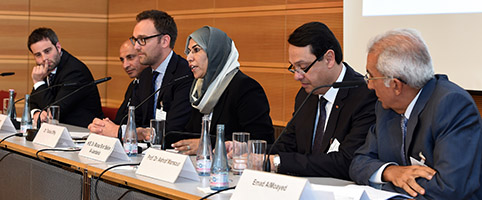
Session 1: Professional training combined with higher education: Strategic approaches for Arab-German co-operation
Best prospects for education providers in the Gulf States
Dr Tobias Effey, Head of Department Training and Smart Solutions Centre (TSSC) at the German University of Technology in Oman (GUtech), introduced the first session by presenting various programmes of his university, which is currently attended by 1,300 students, of which three quarters are female. He emphasised the excellent prospects awaiting German providers of education in the Gulf States.
Dr Mona Bint Salim Al-Jardania, Undersecretary for Technological Education and Vocational Training at the Ministry of Manpower in Oman, conveyed an overview of vocational education and training in her country and described practical training elements as important strategic measures that have already been made mandatory in numerous training programmes. She described state-run vocational training centres where companies can obtain training for their new employees and she highlighted the great significance of the currently 376 private institutions for vocational education and training and their knowledge of industry demand.
According to Dr Abdulla Al Karam, Director General of the Knowledge and Human Development Authority in the United Arab Emirates (UAE), the gap between the desire of young people and their parents for an academic degree and the industry demand for capable and motivated employees is continuously widening. He identified the promotion of curiosity, of gathering experience and of personal qualifications as a key social task and said that these factors have to be taken into consideration when choosing a suitable course of education.
Professor Ashraf Mansour espoused education reforms, economic growth, political stability and the creation of jobs in this session. According to him, 178 million people under the age of 25 years in the Arab countries currently are in need of vocational education and training.
Alexander Turnwald of Capacity Building Partnership highlighted in his presentation the concept of dual degree courses and the good prospects for their export into the Arab countries. He particularly emphasised their excellent suitability for the training of public service executives.
Emad AlMoayed, Chairman of the National Institute for Industrial Training (NIIT) in Bahrain, presented his institution, which was established following an initiative by employers. It is the largest institution for vocational education and training in Bahrain and offers dual degree courses for 400 trainees.
During the subsequent discussion, the panellists stressed the fact that private education providers are esteemed partners of government institutions in the MENA region due to their proximity to the market and the industry.
German providers in particular already occupy key positions or will encounter favourable conditions for accessing attractive vocational education and training markets. The experts emphasised that the integration of entrepreneurship in vocational education and training programmes as well as the input from the industry and research will be further promoted.
